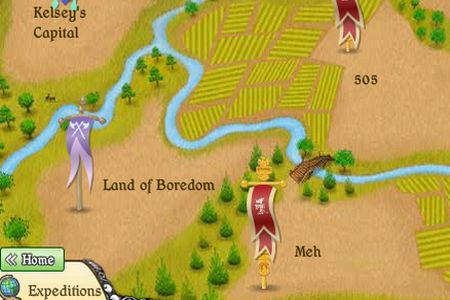
For the duration of this essay, we shall assume that eating and exercising are separate activities. If you run a marathon, adding carbohydrates may be a good idea; if you run for the bus, probably not so much.
Since understanding these things is becoming a matter of life or death, I tend to pick it up wherever I find it. And since it affects millions and millions of fellow earthlings, I should probably share it. Let us talk about exercise and body fat.
I read an article in the Norwegian business daily DN. They have a popular section on health and fitness. Businesspeople need to stay in shape, they don’t get it as part of their job. This article said to forget pulse watches and such, and talk instead. If you could (just barely) lead a normal conversation or recite a familiar text, you had the ideal speed for burning fat. Faster than that, and the body switches to burning carbs instead.
This is correct, in the sense that fat is a much more complex form of molecule and takes longer time and more oxygen to burn. Therefore when you exert yourself, your body resorts to sugar, which is what all carbs come down to eventually. Sugar is simpler and burns faster and easier. And unlike fat, you can get energy from glucose without enough oxygen. There is an enzyme that can split glucose and release part of the energy directly. The result is lactic acid, which is then burned later when you get enough oxygen.
(Until recently it was believed that lactic acid built up in the muscles and was the reason why people got stiff and sore after exercise. This is no longer considered a fact. It seems lactic acid is harmless in the levels found during and after exercise. It also leaks easily into the blood and is greedily accepted by other cells who burn it for food or restore it to glucose for later use.)
So it is true that you burn the most fat while you are still breathing freely enough to talk. But there is a difference between “nothing but the truth” and “the whole truth”. Other authorities urge you to press yourself harder. After all, this carb burning may be faster, but it is less efficient. When you run, you spend a lot more energy than when you walk: Not just per minute, but also per mile. Running is not energy-efficient. And fat is stored energy. If you spend more energy than you eat, no matter how, you will lose weight.
To explain this, we have to look at the body’s use of energy. It actually has two separate but overlapping “economies”. Carbs are fast energy and can be compared to cash, while fat is slower and can be compared to putting money in the bank. Just like most of us carry a little cash on us, the body stores enough carbs for about a day of normal activity without eating. So in theory you only need to eat every other day! But your stomach probably disagrees with this; mine certainly does. Still, there are people who live this way. They are generally in good health and tend to age more slowly, or so they say. (Controlled studies show more varied results.) Whether they are able to concentrate on their work while their stomach is busy faking its own death, I do not know. You may want to ask them.
Since most of us eat every day, many times a day, it is common that our carbohydrate storage fills up and actually overflows. In this case, the body burns carbs first and the fat you eat goes straight at your belly for use in the next famine. If there are still leftover carbs, fat cells try to convert it into fat. However, humans suck at this, and much of the energy is lost in the process. (Well, technically energy cannot be lost. It is spread in your body as heat. So you may want to try a sugar rush during the arctic winter.)
One exception is fructose, a sugar that can be converted to fat in the liver with very little loss. It is a common ingredient in sweets and soft drinks in the USA, but in the rest of the world it is rarely found except in honey, which we probably get less of than we should. In the USA, negative publicity has caused many suppliers to illegally rename their product “corn sugar”. So if you buy something that contains “corn sugar”, you can assume that 1) it will end up as fat if you eat it, and 2) it comes from liars with a bad conscience. Â However, if you swear to a high-fat diet, fructose is probably the closest you come to fat while still tasting sweet.
Now instead of fasting every other day, you may decide to work out instead. Let’s say you are not an athlete and so you just go for a brisk walk. In the beginning, your body will mostly burn sugar, because there is already too much of it. During the first part of your walk, your pulse will probably be lower. But after a while your blood sugar will fall slightly, and your pancreas will make glucagon, Â the “anti-insulin”. Just as insulin told your body to stow away sugar from the blood and store it first in your muscles and then as fat, it now says the opposite: The liver puts more sugar into the bloodstream, and muscles burn fat in addition to spending their own carbs storage (glycogen – why do they make the names so similar?).
Now while merrily you stroll along, your body is burning both sugar and fat. (Actually it always does, but the fat is only a small part if there is plenty of sugar.) Â Now you can either keep walking, or start running.
If you have limited time, running is the obvious answer. You spend a lot more energy that way in the same time. So what if most of it is carbohydrate? That just means your muscles and liver will be reasonably empty even if you have not fasted for a day. So the next time you eat carbs (bread, pasta, rice, cane sugar etc) your body will be busy restocking its glycogen reserves, while using fat as fuel. Instead of the other way around, as it used to be. You still lose weight in the long run, and this probably makes you happy if you have read this far. (There are people who don’t need to lose weight. They are probably doing something else by now.)
But if you have plenty of time, continuing to walk may be more pleasant, and therefore you are more likely to do it again. People, like amoebas, tend to withdraw from what causes pain and stretch toward what gives pleasure. And usually – unless you are really dedicated to your food – you are at least not eating while you walk. So that’s something. ^_^
The thing is, you can keep going much longer when you pace yourself. Muscles can only store so much glycogen (although it improves with regular training). When they begin to run out, you “hit the wall”. Think of it as suddenly having just one engine instead of two. You used to have sugar and fat to fuel your muscles, but suddenly there is only the fat engine running, and that is the slow one. You won’t die (unless you have some preexisting condition) but your body will no longer be able to respond to your will. Even if you tell it to run, it will at best be able to walk, and even that reluctantly. This is a quite unpleasant experience, apart from the stiffness and soreness that you anyway get after pressing yourself. So not motivating.
Therefore, I recommend pacing yourself if you have plenty of time, but racing yourself if you have little time and no heart or lung problems.
I hope you now see how people can have two opposite opinions on this matter and both be right! This is actually something that happens often in this world, and causes conflict or at least discord. By knowing more, understanding more and seeing the whole from a higher perspective, you can overcome this source of conflict and experience harmony and happiness. Â ^_^






